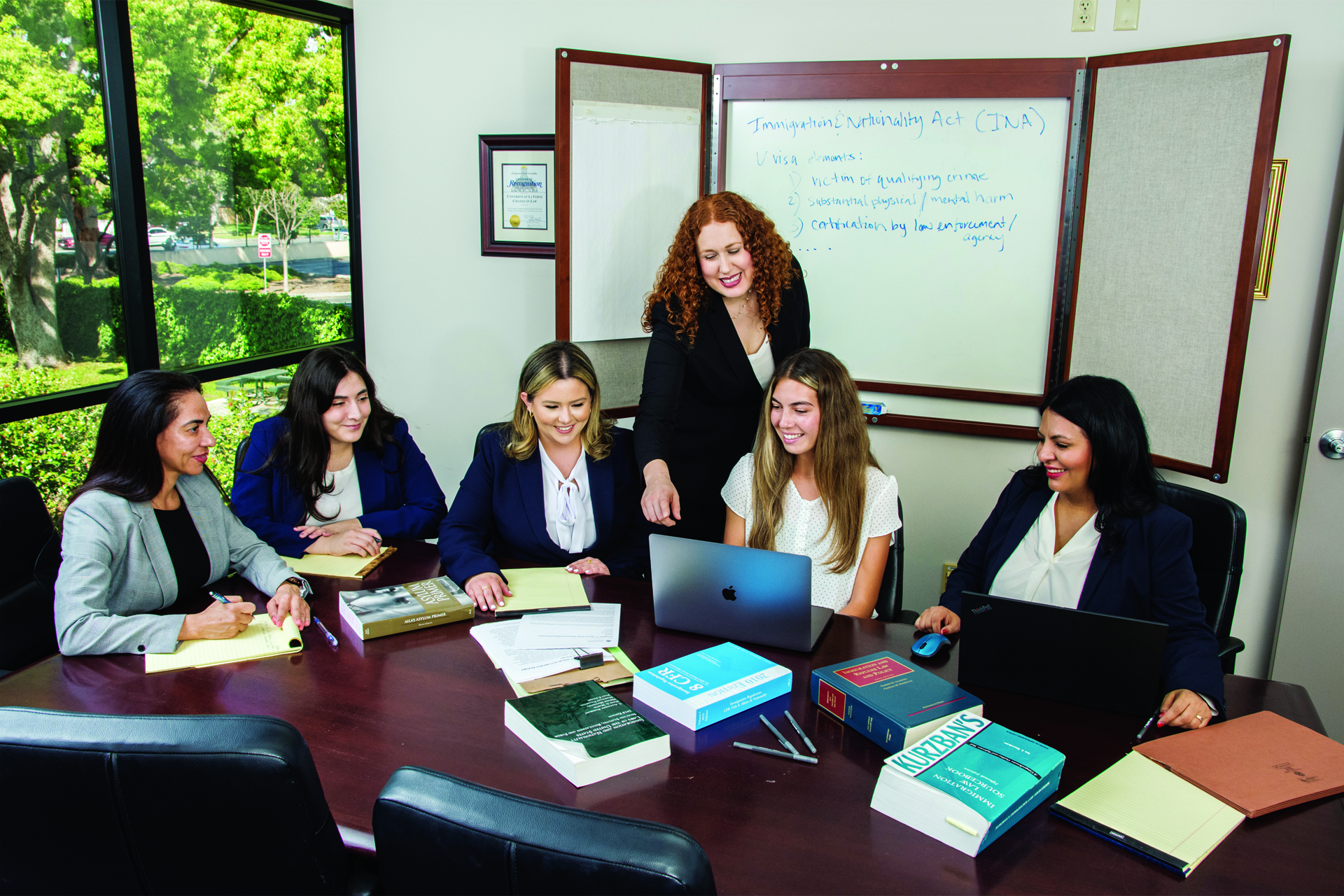Justice for All
Two hands-on legal clinics in University of La Verne’s College of Law provide students with real-world experience helping disenfranchised clients and critical lessons in self-care.
June 6, 2022
At the University of La Verne’s College of Law, two clinics are preparing students to advocate on behalf of legally disenfranchised clients.
The Misdemeanor Appellate Advocacy Clinic works with the San Bernardino County Judicial System. Students assist clients who are appealing misdemeanors, or attempting to clear their records following a criminal conviction, allowing them to find housing, pursue jobs, or join the military.
The Justice and Immigration Clinic provides pro bono representation to those in need of legal assistance in immigration matters.
Both programs build a sense of accomplishment and confidence for these young attorneys-to-be, and instill in students an understanding of the critical role lawyers play in creating an equitable society.
“It is a profession in which you become more aware of self and self-development,” said assistant professor Michele Assael-Shafia. “As a lawyer, you take an oath to treat people with respect and professionalism, and to have an obligation to ethics.”
Assael-Shafia and Associate Dean for Academic Affairs Placido Gomez co-direct the Misdemeanor Appellate Advocacy Clinic. They supervise as students prepare briefs, set up oral arguments, and sometimes present before a panel of judges.
In a recent case presented by the students, one of the judges was decidedly impressed, asking in court, “Are you sure you all are law students?”
“What the clinic does for students is almost immeasurable,” Gomez said. “When they have a real case with a real client, it is no longer theoretical. They have someone’s life in their hands.”
The same is true in the Justice and Immigration Clinic, said Krystal Rodriguez-Campos, a certified specialist in immigration and nationality law, and a visiting professor at the clinic.
Students in their final year work with U visa and asylum applicants. Asylum applicants have suffered torture or persecution in their home country, while U visa applicants have been victims of a crime in the United States.
Rodriguez-Campos trains students to prepare a case by conducting client interviews, writing legal briefs, and developing case strategy.
“We teach our students to be sensitive in talking to clients,” she said. “Traumatized people often won’t look you in the eyes. They sit close to the door. Often they will break down, or have memory issues. If you don’t know how trauma works, you can’t do the job.”
The well-being of both the client and the student is critical.
“When you are dealing with these horrible stories, it can affect you,” she said. “Our students watch training exercises and read materials from social workers, psychologists, and other mental health workers. We want them to be conscious of their own limits emotionally and psychologically to avoid burnout.”
Many College of Law students are immigrants themselves, noted Rodriguez-Campos. Because of that, “they are able to respond in a more compassionate manner.”
Gomez echoed the importance of compassion, justice, and safety in the education of new attorneys.
“Our students will be lawyers who understand their responsibility to serve their community,” he said.
